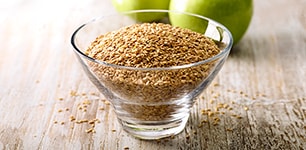Are you getting the right nutrients?

June is National Dairy Month, and a great way to start the summer is with nutrient-rich dairy foods. But whether it is by choice or an intolerance, not everyone can enjoy the tasty benefits of dairy. The National Institute of Diabetes and Digestive and Kidney Diseases (NIDDK) estimates that 30 to 50 million Americans are lactose intolerant.
The challenge with avoiding all milk and milk products due to lactose intolerance is that people may miss out on key nutritional and health benefits that milk and milk products provide. Specifically, without milk, cheese, and yogurt in the diet, it can be difficult for people to meet the recommended intake of several essential nutrients, including calcium and vitamin D.
The good news is that even if you are lactose intolerant, this doesn’t necessarily mean you need to abstain from dairy foods. There is a wide range of lactose intolerance, and most people with lactose intolerance can comfortably consume certain dairy products with minimal or no symptoms.
Tips to Enjoy Eating Dairy Again
Eating a Dairy-Free Diet
While many people are able to enjoy dairy even if they are lactose intolerant, some people choose to eliminate dairy from their diet altogether. These brands offer lactose-free products you can enjoy on a dairy-free diet.
Sources:
- "Lactose Intolerance". The National Digestive Diseases Information Clearinghouse (NDDIC). NIH Publication No. 09-2751. June 2009, updated April 12, 2012.
- "Fall in Love Again with Dairy." National Dairy Council. January 1, 2015.
- "You Asked, We Answered: Lactose Intolerance 101." National Dairy Council. January 11, 2016.
- "Lactose Intolerance." U.S. Department of Health and Human Services: National Institute of Diabetes and Digestive and Kidney Diseases. June 2014.
- “Dairy: Nutrients and Health Benefits.” Choose MyPlate. June 26, 2015.

 You are about to leave publix.com and enter the Instacart site that they operate and control. Publix’s delivery and curbside pickup item prices are higher than item prices in physical store locations. Prices are based on data collected in store and are subject to delays and errors. Fees, tips & taxes may apply. Subject to terms & availability. Publix Liquors orders cannot be combined with grocery delivery. Drink Responsibly. Be 21. For prescription delivery, log in to your pharmacy account by using the Publix Pharmacy app or visiting
You are about to leave publix.com and enter the Instacart site that they operate and control. Publix’s delivery and curbside pickup item prices are higher than item prices in physical store locations. Prices are based on data collected in store and are subject to delays and errors. Fees, tips & taxes may apply. Subject to terms & availability. Publix Liquors orders cannot be combined with grocery delivery. Drink Responsibly. Be 21. For prescription delivery, log in to your pharmacy account by using the Publix Pharmacy app or visiting 
